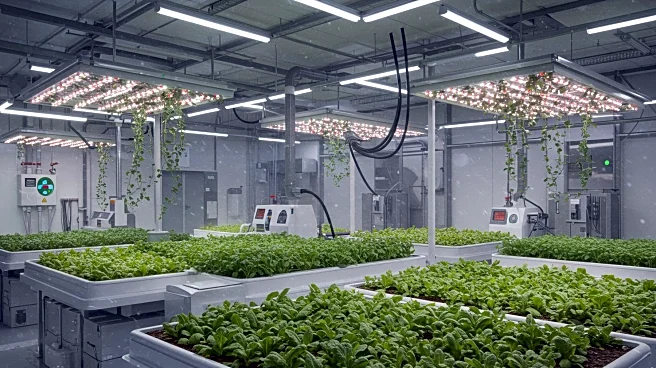What is the story about?
What's Happening?
The agricultural GMO market is experiencing significant growth, driven by advancements in biotechnological methods such as gene editing. These genetically modified organisms are designed to improve crop yield, resist pests and diseases, tolerate environmental stresses, and enhance nutritional content. Major companies like Monsanto/Bayer, BASF, and Dow AgroSciences are leading the market, which is projected to grow at a compound annual growth rate of 11% from 2025 to 2032, reaching a market value of $60 billion. The market is segmented by types such as herbicide-tolerant, insect-resistant, and drought-tolerant crops, and by applications including crop yield improvement and environmental sustainability.
Why It's Important?
The expansion of the GMO market is crucial for addressing global food security challenges, especially as the global population continues to rise. By increasing agricultural efficiency and reducing pesticide use, GMOs contribute to sustainable farming practices. This growth is particularly significant in regions like North America, where regulatory approvals are easing, and in emerging economies where adoption is rising. However, the market faces challenges such as public skepticism and regulatory hurdles, which could impact its growth and acceptance.
What's Next?
The market is expected to continue its expansion with the development of climate-smart crops and the integration of GMOs with digital farming technologies. Companies are likely to focus on improving crop nutrition to combat malnutrition and expanding into new geographies. Collaboration between public and private sectors for technology dissemination could further drive growth. Stakeholders will need to address ethical considerations and intellectual property disputes to ensure broader acceptance and market access.
Beyond the Headlines
The GMO market's growth could lead to long-term shifts in agricultural practices, emphasizing sustainability and resilience against climate change. Ethical considerations around GMOs, such as biodiversity impact and consumer acceptance, will continue to be debated. The integration of precision agriculture technologies with GMOs could revolutionize farming, making it more efficient and environmentally friendly.















